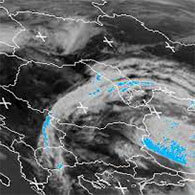MAE Participarea ministrului afacerilor externe Luminița Odobescu, în calitate de vorbitor, la evenimentul The Black Sea Region as a Global Inflection Point, organizat de Institutul Hudson din Washington D.C.
MAE:Participarea ministrului afacerilor externe Luminița Odobescu, în calitate de vorbitor, la evenimentul The
24 Jun, 2024 09:25
ZIUA de Constanta
 586
Marime text
586
Marime text
 586
Marime text
586
Marime text
Comunicat de presă
Participarea ministrului afacerilor externe Luminița Odobescu, în calitate de vorbitor, la evenimentul The Black Sea Region as a Global Inflection Point, organizat de Institutul Hudson din Washington D.C.
Participarea ministrului afacerilor externe Luminița Odobescu, în calitate de vorbitor, la evenimentul The Black Sea Region as a Global Inflection Point, organizat de Institutul Hudson din Washington D.C.
Ministrul afacerilor externe Luminița Odobescu a susținut vineri, 21 iunie 2024, în marja vizitei de lucru efectuate în SUA, o alocuțiune pe tema The Black Sea Region as a Global Inflection Point în cadrul unui eveniment dedicat semnificației evoluțiilor din regiunea Mării Negre pentru securitatea euro-atlantică, organizat de Institutul Hudson din Washington D.C.
În cadrul alocuțiunii, ministrul afacerilor externe a ilustrat importanța-cheie a regiunii Mării Negre pentru securitatea euro-atlantică și globală, precum și ca areal de conectivitate energetică, alimentară și comercială pe axele nord-sud, respectiv est-vest. A prezentat evaluarea conform căreia regiunea Mării Negre constituie, în prezent, punctul de intersecție a întregii game de amenințări la adresa ordinii internaționale bazate pe reguli, precum și principalul model în gestionarea acestora.
Ministrul afacerilor externe a reiterat importanța abordării strategice a SUA privind regiunea Mării Negre și a salutat dialogul intens pe temă între țara noastră și Statele Unite. Totodată, a trecut în revistă eforturile României de promovare a securității, stabilității și rezilienței în regiunea Mării Negre, instrumentate atât în plan național, cât și prin fructificarea oportunităților de cooperare multilaterală. A reiterat sprijinul ferm al României pentru Ucraina, Republica Moldova și celelalte state partenere UE și NATO din regiunea Mării Negre și a subliniat angajamentul și eforturile susținute ale României de facilitare a exporturilor de produse agricole din Ucraina.
Transmitem mai jos textul în limba engleză al alocuțiunii ministrului român al afacerilor externe.
***
Alocuțiunea ministrului afacerilor externe Luminița Odobescu la conferința The Black Sea Region as a Global Inflection Point, susținută la Institutul Hudson din Washington D.C.
Good morning,
Ladies and gentlemen,
Dear friends,
It’s a privilege for be being here today and able to share some of our views about the fundamental importance of the Black Sea in the current geo-political environment and there is a significant overlap with your own analysis and, yes, the Battle for the Black Sea is not over. The fact that the Black Sea region is fundamental for Euro-Atlantic security is a point that Romania has been making for decades within NATO, within the EU, in our bilateral dialogue with the United States.
The region of the Black Sea is a vital corridor for the movement of goods and resources, both on the East-West, and North-South axis, including energy and Ukrainian grain and other products bound for world markets. The Black Sea links Europe with the South Caucasus and Central Asia and serves as a gateway to the Middle East. It holds significant untapped energy resources and an immense economic potential. It is bordered by three NATO allies and several NATO partners. It is also bordered by EU member states and candidate member states. So with the exception of Russia, as I said, all littoral states are either EU Member States or aspire to be.
In drafting my intervention today, I started from the key assessment used by the US Administration in describing our world today, namely that we find ourselves at an inflection point. And Romania shares this assessment.
However, this inflection point is not only a time in history, but holds clear boundaries on the map of the world.
Today, the key geopolitical inflection point is the Black Sea region. My statement is based on a set of arguments that I will first list and then expand upon.
1. The Black Sea is the only region where a great power, permanent member of the UN Security Council - Russia, is engaged in interstate warfare. Moscow’s action directly challenges the rule-based international order and have significant contagion potential.
2. Moscow’s political aim to re-establish a sphere of influence in the Black Sea region goes beyond challenging the rules-based international order. It is, in fact, an attempt to create an alternative to this order. The final result will be of global significance.
3. The persistence and global significance of Moscow’s assault on the rules-based international order has led to an unprecedented alignment with other significant actors that share a revisionist foreign policy. No need to say who they are - China, Iran, North Korea are all, in one way or the other, present in the Black Sea region and acting in support of Russia’s attempt to subvert and replace the principles of global governance.
4. Supporting Ukraine is an indispensable but insufficient condition for defending the rule-based international order. In the absence of a regional approach we risk revisiting the same issues a few years down the line, facing renewed aggression in the Black Sea. A long-term solution depends on a secure, prosperous and connected Black Sea region. And I just kindly invite you to look back in history, in 2008, 2014, 2022.
5. Active U.S. leadership and support, in coordination with the EU, NATO and regional Allies and partners is indispensable for the long-term security and resilience of the Black Sea region. The U.S. Black Sea Security and Development Strategy will be instrumental in this regard.
Allow me now to expand on the ideas presented previously.
First, the unique character of Russia’ aggression in the Black Sea region.
Unlike other regions of the world, where active and aggressive actions against the rule-based international order are still below the threshold of full war, the Black Sea is, as we speak, the location of armed aggression by a great power. The effects of Russia’s aggression are global, acute, cascading and mutually reinforcing.
All major principles that held together the post-Cold War order are being challenged by Russia in the Black Sea region: international law, state sovereignty, freedom of navigation, just to name only a few.
For my second argument, I would like to draw your attention to the fact that, in the Black Sea, Moscow’s aggression has clear political aims. It seeks to create an alternate regional order, where states have limited sovereignty, great powers unilaterally imposed against their will and trade and technology are weaponized by the state.
The final outcome of Russia’s challenge to the rule-based international order in the Black Sea region will be mirrored globally. It will have profound and direct implication and effects not only on our security, but also on US security and on the US capacity to lead a diverse global coalition in support of the rule-based international order.
This brings me to my third argument: as the Russian aggression against Ukraine continues, all major actors currently challenging the rule-based international order have gradually aligned and have a simultaneous, active involvement in the Black Sea region, in support of the Russian aggression.
Iran is supplying drones and technology; North Korea is supplying ammunition and missiles. Chinese companies are still there, so, yes, they are all present in the Black Sea.
They leverage shared challenges such as energy, food and technology dependencies; climate change; sanitary vulnerabilities; or the fight against inflation or corruption Their presence creates consequences regionally and for global competition.
In our vision, the Black Sea region is a textbook case of how the challenges listed in the current US National security Strategy intersect. We have national competitors aligning in support of aggression, including by leveraging shared challenges in pursuit of their revisionist goals.
This alignment is a key development. It links the Black Sea to all other geopolitical hotspots and Euro-Atlantic security to Indo-Pacific security.
Helping Ukraine is an indispensable condition for defending the rule-based international order. However, it is not enough. In the absence of a regional approach we risk, as I said, revisiting the same issues a few years down the line, facing renewed aggression in the Black Sea.
As long as Russia is willing and able to directly challenge international norms, other powers will remain aligned with this effort and enable Russia’s attempts.
To avoid this scenario, we need to shape the regional environment in a way that makes it impossible for Moscow to renew its aggressive policies.
This brings me to my final point, achieving a secure and resilient Back Sea region, which requires an active, predictable US involvement and support, coordinated, of course, with us, with the EU, NATO and regional allies and partners.
The US is clearly placed to influence developments in the Black Sea region. It has interest in denying revisionist powers a showcase victory and sphere of influence. Its capacity to engage across the full spectrum of security, stability, economy and energy, with all regional allies and partners is unmatched.
The adoption of the Black Sea Security Strategy by the US Department of State last year, and its future development in answer to the provisions of the National Defense Authorization Act of 2024 are, indeed, very good news for my country, for Romania, and Romania remains ready to contribute to the future development and implementation of the US Black Sea strategy.
Thank you!
Urmareste-ne pe Grupul de Whatsapp
Comentarii
 Fondul Documentar Dobrogea de ieri și de azi
Fondul Documentar Dobrogea de ieri și de azi


















